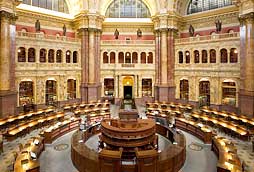Imagine you wanted to find books or journal articles on a particular subject. Or find manuscripts by a particular author. Or locate serials, music or maps. You would use a library catalog that includes facts – like title, author, publication date, subject headings and genre.
That information and more is stored in the treasure trove of library catalogs.
It is hard to overstate how important this library catalog information is, particularly as the amount of information expands every day. With this information, scholars and librarians are able to find things in a predictable way. That’s because of the descriptive facts presented in a systematic way in catalog records.
Read the full article: Lead Copyright Officer, Librarian, University of Michigan. The Conversation. July 19, 2017 9.50pm EDT
But what if you could also experiment with the data in those records to explore other kinds of research questions – like trends in subject matter, semantics in titles or patterns in the geographic source of works on a given topic?
Now it is possible. The Library of Congress has made 25 million digital catalog records available for anyone to use at no charge. The free data set includes records from 1968 to 2014.
This is the largest release of digital catalog records in history. These records are part of a data ecosystem that crosses decades and parallels the evolution of information technology.
In my research about copyright and library collections, I rely on these kinds of records for information that can help determine the copyright status of works. The data in these records already are embodied in library catalogs. What’s new is the free accessibility of this organized data set for new kinds of inquiry.
The decision reflects a fresh attitude toward shared data by the Library of Congress. It is a symbolic and practical manifestation of the library’s leadership aligned with its mission of public service…
Read the full article: Lead Copyright Officer, Librarian, University of Michigan. The Conversation. July 19, 2017 9.50pm EDT
Submitted by Inese Christman.

